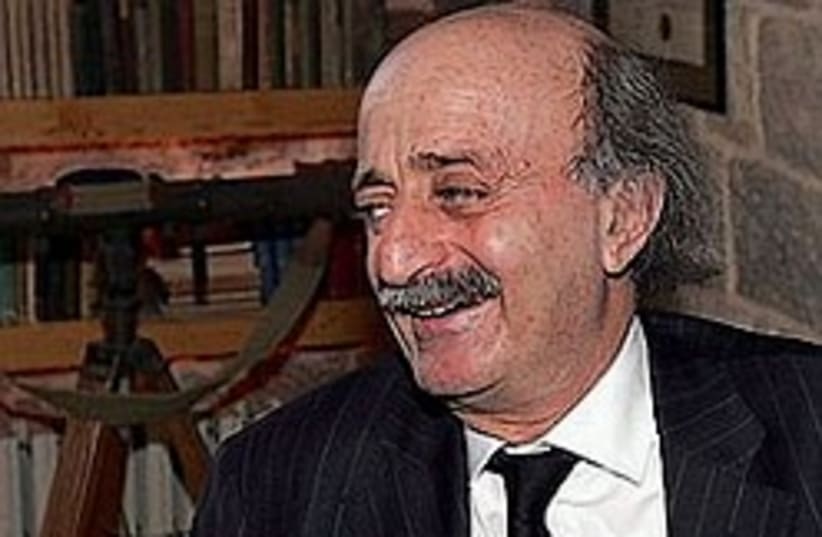A key leader of Lebanon's Western-backed parliamentary majority says he is shifting his political allegiance toward a Hizbullah-led coalition in a step likely to trigger a political realignment in the volatile country and a further delay in the formation of a unity government.
But what is still unclear from comments made late Sunday by Druse leader Walid Jumblatt is whether he will take the next step and pull his Progressive Socialist Party out of the parliamentary majority led by Prime Minister-designate Saad Hariri.
Hariri's coalition, of which Jumblatt has been a key leader, won a general election in June, retaining a majority in the 128-seat parliament after fending off a strong challenge from the Iranian-backed Hizbullah and its allies.
A shrewd politician known for his shifting loyalties, Jumblatt told party loyalists late Sunday that he had entered the alliance with Hariri's Western-backed Sunni and Christian factions "out of necessity and must not continue."
He did not outright say he planned to pull his 11 lawmakers out of the 71-seat majority in parliament, thus denying it the threshold to govern without the opposition. But his comments drew swift criticism from the alliance's main faction, the Future Movement.
Without naming Jumblatt, it said cryptically that it could not criticize Jumblatt for shifting his loyalty but only so long as it did not mean "going back to the shameful history in which many were partners in giving priority to private interests over that of the country."
Recalling a landmark visit to Washington in 2006, Jumblatt told his party loyalists Sunday that he regrets his meetings with "neo-conservatives" then serving in the Bush administration, describing those encounters as a "black spot" in his political career.
Jumblatt, 59, was the main force behind the creation of a Western-backed alliance that led massive street protests to demand the withdrawal of Syrian troops from Lebanon following the 2005 assassination of former Prime Minister Rafik Hariri.
The Syrians, who pulled their army out of Lebanon in 2005, deny any part in the killing.
A longtime leftist and a one-time close Syrian ally, Jumblatt shifted after Hariri's assassination to the Western-backed camp after being a main beneficiary of Syrian goodwill when Damascus had the final say in Lebanese affairs for close to 30 years.
Since the 2005 break with Damascus, however, he became one of the harshest critics of Syria in Lebanon, calling for the overthrow of President Bashar Assad's regime and blaming Syria for the 1977 killing of his father, prominent politician Kamal Jumblatt. He has also accused Syria of being behind the assassination of Hariri and other politicians in Lebanon since 2005.
But Jumblatt has moderated his anti-Syrian rhetoric since fighters from the Shiite Hizbullah stormed Beirut's Sunni Muslim neighborhoods in May last year, taking control of vast swaths of the city with surprising ease.
In his comments Sunday, he said he was returning to his leftist roots and will seek "distinguished relations" with Syria.
